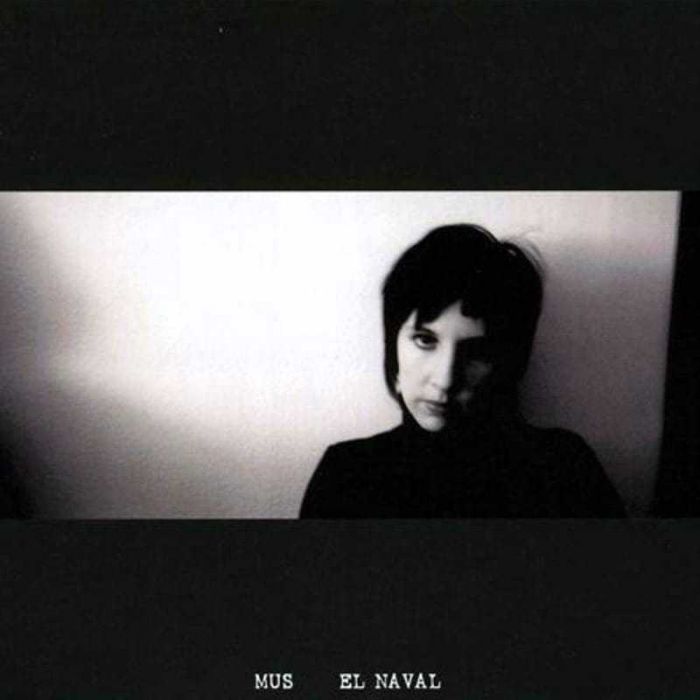El Naval by Mus (Review)

This review originally started out as a review for Fai, Mus’ 1999 release. I had discovered Fai sitting on my CD rack (I’d forgotten I even owned it), and after listening to it a few times, I planned on reviewing it. In the course of writing the review, I made some casual remarks about how the Spanish duo had stripped away many of the electronic and atmospheric aspects of their music, instead opting for a more acoustic sound on El Naval.
While I didn’t say it in so many words, I was basically picking on El Naval, convinced that it just didn’t live up to the beauty of Fai’s more atmospheric, synth-oriented direction. I had this preconcieved notion as to what I enjoyed in Mus’ ouevre and I wasn’t going to change my opinion. But the more I wrote my review, the more I sung the praises of Fai (which is, in fact, a very good album and well worth tracking down) at the expense of El Naval, I started realizing just how flimsy some of my smart-alecky comments were.
To be perfectly honest, I hadn’t listened to El Naval since last year, and even then it was a perfunctory listen. But I remembered that it was more acoustic and stripped down, and being the fan of ambience and atmosphere that I am, I was pretty sure that was a bad thing. But my conscience was bugging me, so I pulled El Naval off the rack and gave it a cursory listen. And then I gave it a deeper, more intent listen, and I realized I’d have to change my whole review.
Yes, Mus stripped their sound down quite a bit for El Naval. As a result, the music is sparser and darker than their previous efforts (as is hinted at by the stark album artwork). As a fan of their ability to blend acoustic elements with airy synths, ghostly samples, and minimal programming, this new Mus was initially a hard pill to swallow. However, in retrospect, I realize I was just being snobbish, and rather than giving the band’s new direction a fair shake, I was relying on that oldest of indie-snob maxims: “I liked their old stuff better.” But as I listened to El Naval, this time with an open mind, I began seeing the beauty that I had ignored earlier.
Of course, the electronics aren’t completely gone. Their ghosts still haunt these songs. In fact, “haunted” is probably the best word to describe El Naval. Sad spectres seem to drift through these songs, framed by Monica Vacas’ dreamy vocals and Asturian dialect, soft piano notes that seem to echo from end of the album to the other, and the solemn acoustic guitars that form much of the album’s backbone. Stripping away much of synthetic ambience brings these things to the forefront, and as a result, the mood and tone of these delicate songs can hit you like a brick.
Songs like “Al Oeste de la Divisoria” and “Rencor” with their simple but lovely piano melodies, and “Sacramento” with its delicate weave of acoustic guitar and faint piano, evoke huge feelings with only the barest of musical strokes. Right now, I’m listening to this album in my “office,” essentially an empty dining room save for my desk and computer. As a result, there’s tons of space, and these simple, sad songs fill it quite easily. In fact, I have a feeling that no matter where I go in this apartment, I’d be able to hear those sounds echoing off the stark walls and wooden floors, coloring the mood of each room with memories and introspection.
While the overall mood of El Naval is predominantly sedate and lulling, lending itself to quiet moments of loneliness and nostalgia, a handful of songs provide a nice break from the mopeyness. Opening with a handful of guitar notes, “Embalses Y Rios” blossoms into the album’s most upbeat stretch, a breezy track of shimmering synths, chiming guitars, and brushed drums that feels perfect for long autumn drives, where the air is crisp and sharp and the trees are sparked with fiery colors. And “Cuesta” explodes into a full-on rock song, or at least as close to “rock” as Mus will ever get, with crashing drums and ragged guitars.
On “Casi Ensin Zarrar Los Gueyos,” the duo’s electronic facet resurfaces, though it’s far more muted than anything else they’ve done with synths. Vacas sounds as if she’s sleepwalking through a cave, while the watery synths ripple like reflections from an underground pool. This is the most ambient track on the album, lent the simplest of structures by a handful of guitar notes and muffled drums. The album closes with “Encofraos,” and while it’s delicate guitar and drums do nothing to break the album’s mood, the song overall does seem to have a slightly less downcast look to it.
Listening to El Naval, and thinking of how easily I’d written it off in the past, I have to wonder how often I’ve done that in the past with other albums. Rather than give El Naval a fair shake, I’d convinced myself that I only enjoyed one aspect of this multi-faceted duo. And as a result, I’d completely dismissed El Naval, an album that I found I easily warmed up to once I was a bit more honest with it and myself. I suppose that at some point in the future, I’ll revisit my Fai review, but right now, I’m too enthralled by El Naval to do so.